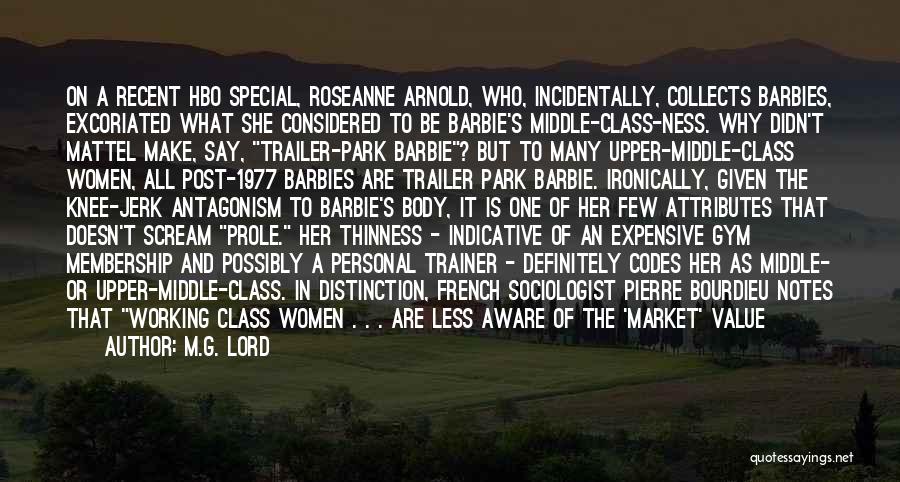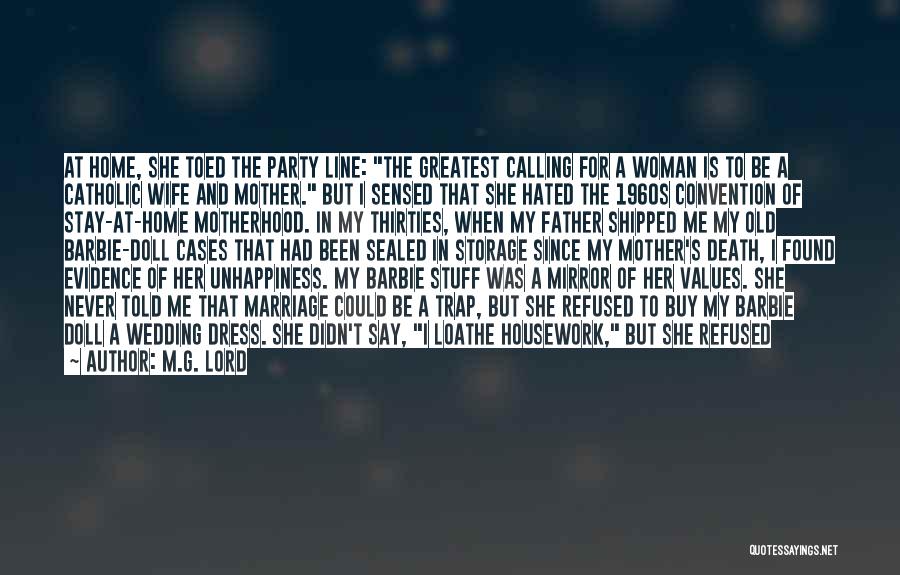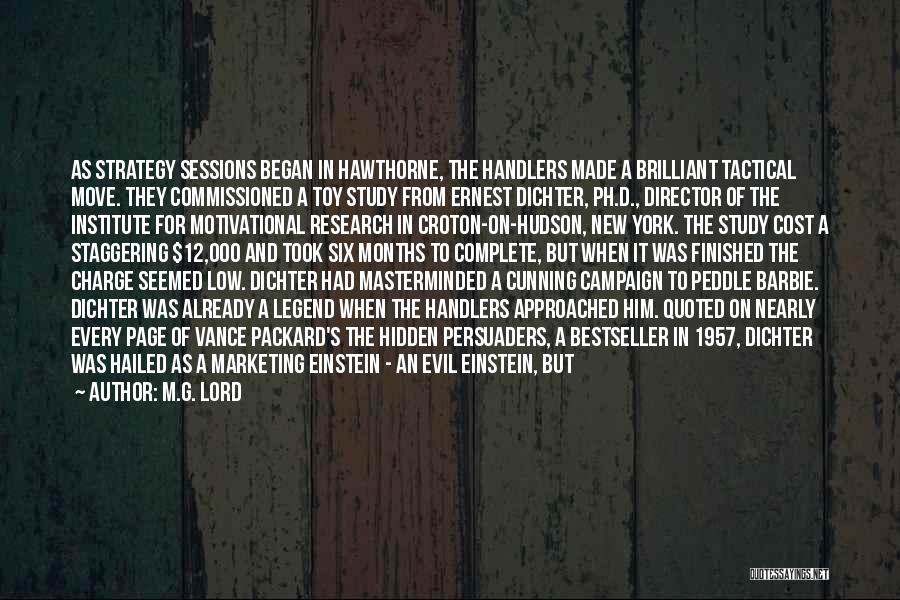M.G. Lord Quotes & Sayings
Enjoy the top 3 famous quotes, sayings and quotations by M.G. Lord.
Famous Quotes By M.G. Lord

On a recent HBO special, Roseanne Arnold, who, incidentally, collects Barbies, excoriated what she considered to be Barbie's middle-class-ness. Why didn't Mattel make, say, "trailer-park Barbie"? But to many upper-middle-class women, all post-1977 Barbies are Trailer Park Barbie. Ironically, given the knee-jerk antagonism to Barbie's body, it is one of her few attributes that doesn't scream "prole." Her thinness - indicative of an expensive gym membership and possibly a personal trainer - definitely codes her as middle- or upper-middle-class. In Distinction, French sociologist Pierre Bourdieu notes that "working class women . . . are less aware of the 'market' value of beauty and less inclined to invest . . . sacrifices and money in cultivating their bodies." Likewise, Barbie's swanlike neck elevates her status. A stumpy neck is a lower-class attribute, Fussell says. — M.G. Lord

At home, she toed the party line: "The greatest calling for a woman is to be a Catholic wife and mother." But I sensed that she hated the 1960s convention of stay-at-home motherhood. In my thirties, when my father shipped me my old Barbie-doll cases that had been sealed in storage since my mother's death, I found evidence of her unhappiness. My Barbie stuff was a mirror of her values. She never told me that marriage could be a trap, but she refused to buy my Barbie doll a wedding dress. She didn't say, "I loathe housework," but she refused to buy Barbie pots and pans. What she often said, however, was "Education is power." And in case I was too thick to grasp this, she bought graduation robes for Barbie, Ken, and Midge. — M.G. Lord

AS STRATEGY SESSIONS BEGAN IN HAWTHORNE, THE Handlers made a brilliant tactical move. They commissioned a toy study from Ernest Dichter, Ph.D., director of the Institute for Motivational Research in Croton-on-Hudson, New York. The study cost a staggering $12,000 and took six months to complete, but when it was finished the charge seemed low. Dichter had masterminded a cunning campaign to peddle Barbie. Dichter was already a legend when the Handlers approached him. Quoted on nearly every page of Vance Packard's The Hidden Persuaders, a bestseller in 1957, Dichter was hailed as a marketing Einstein - an evil Einstein, but an Einstein nonetheless. He pioneered what he called "motivational research," advertising's newest, hippest, and, in Packard's view, scariest trend - the manipulation of deep-seated psychological cravings to sell merchandise. — M.G. Lord





